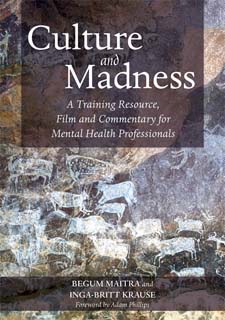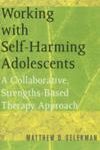Culture and Madness is a training resource that critically approaches the subject of culture by questioning commonly held professional and cultural assumptions and biases. It outlines how mental health professionals can develop the skills in observation, analysis and critical thinking which are central to good mental health practice. The resource combines film, research and clinical scenarios to demonstrate how cultural influences pervade mental health thinking, practice and policy. At its heart is a 150-minute DVD, How Culture Matters, which explores how cultural communities in Britain consider mental health and illness. It shows conversations about culture and mental health taking place in different community contexts: interviews between local persons; between community members and mental health professionals; and between experts in cultural and clinical practice. The accompanying book explores the issues raised in the film further, featuring clinical examples and summarised research drawn across a range of disciplines. In articulating the subtle and textured place of ‘culture’ in the everyday lives of all communities, this resource will encourage mental health professionals to adopt a reflective approach to practice and to pursue a more flexible approach to cross-cultural mental health theory and practice. Full of unique insights and learning points for clinical practice, this resource is required reading for managers and trainers in the field of mental health, and will be a valuable tool for lecturers and students on mental health courses.
Contents:
- Authors’ Note
- Acknowledgements.
- Foreword.
- 1. Introduction.
- 2. Observing and Interpreting.
- 3. Person, Selves and Identity.
- 4. The Idea of Community.
- 5. What is Culture, Anyway?
- 6. Fear and Madness.
- 7. Belief, Faith and Religion.
- 8. What Makes Families?
- 9. The Idea of Childhood.
- 10. Bodies and Things.
- 11. Health and Illness.
- 12. Individuals and Institutions.
- 13. Conclusions.
- Appendix I: How the Film Was Made.
- Appendix II: Glossary. References. Suggested Reading.
Author Bio:
Begum Maitra is a Child Psychiatrist in private practice, an independent expert in public and private law cases involving children and an adult psychotherapist. She trained as a psychiatrist in India and worked for many years as a Consultant child psychiatrist in the British National Health Service in inner city London. She specialises in the role of culture as it relates to the assessment of children and families, particularly of risk, in individual therapy, and through workshops, lectures and conferences for voluntary and statutory organisations.
Inga-Britt Krause is Training and Development Consultant with special reference to race and equity at the Tavistock and Portman NHS Foundation Trust where she also works as a Consultant Systemic Psychotherapist in a Child and Adolescent Mental Health Service. She first trained as a Social Anthropologist at the London School of Economics and Political Science and teaches widely, nationally and internationally, on the subject of social science and psychotherapy and about the place of culture and race in clinical practice and theory.






